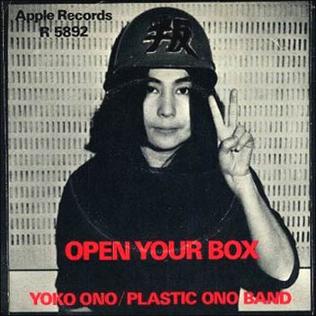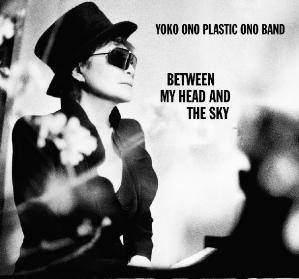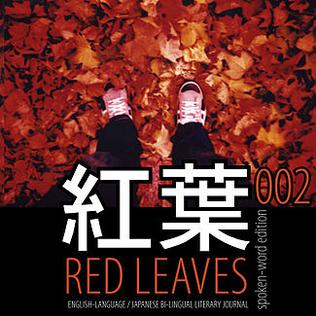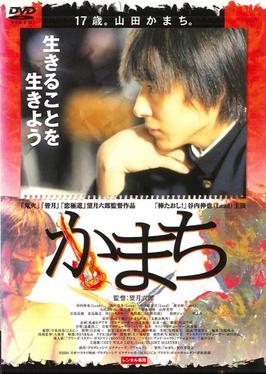No wave was an avant-garde music genre and visual art scene that emerged in the late 1970s in Downtown New York City. The term was a pun based on the rejection of commercial new wave music. Reacting against punk rock's recycling of rock and roll clichés, no wave musicians instead experimented with noise, dissonance, and atonality, as well as non-rock genres like free jazz, funk, and disco. The scene often reflected an abrasive, confrontational, and nihilistic world view.

Yoko Ono is a Japanese multimedia artist, singer, songwriter, and peace activist. Her work also encompasses performance art and filmmaking.

Randolph Denard Ornette Coleman was an American jazz saxophonist, trumpeter, violinist, and composer. He is best known as a principal founder of the free jazz genre, a term derived from his 1960 album Free Jazz: A Collective Improvisation. His pioneering works often abandoned the harmony-based composition, tonality, chord changes, and fixed rhythm found in earlier jazz idioms. Instead, Coleman emphasized an experimental approach to improvisation rooted in ensemble playing and blues phrasing. Thom Jurek of AllMusic called him "one of the most beloved and polarizing figures in jazz history," noting that while "now celebrated as a fearless innovator and a genius, he was initially regarded by peers and critics as rebellious, disruptive, and even a fraud."

Sean Taro Ono Lennon is a British-American musician, songwriter, and producer. He is the son of John Lennon and Yoko Ono, and half-brother to Julian Lennon. Over the course of his career, he has been a member of the bands Cibo Matto, The Ghost of a Saber Tooth Tiger, The Claypool Lennon Delirium and his parents' group Plastic Ono Band. He has released two solo albums: Into the Sun (1998) and Friendly Fire (2006). He has produced numerous albums for various artists, including Black Lips and the Plastic Ono Band.

Double Fantasy is the fifth studio album by John Lennon and Yoko Ono, and the final one before his death. Released in November 1980 on Geffen Records, the album marked Lennon's return to recording music full-time, following his five-year hiatus to raise his son Sean. Recording sessions took place at the Hit Factory in New York City between August and October 1980. The final album features songs from both Lennon and Ono, largely alternating between the two in its track listing. Other tracks recorded by Lennon from the sessions were compiled by Ono for release on Milk and Honey in 1984.

Nels Courtney Cline is an American guitarist and composer. He has been a guitarist for the band Wilco since 2004.

Wedding Album is the third and final in a succession of three experimental albums by John Lennon and Yoko Ono. It followed Unfinished Music No. 1: Two Virgins and Unfinished Music No. 2: Life with the Lions. In Britain, the album was released credited by "John and Yoko", without last names mentioned. In the United States, it was released credited by "John Ono Lennon & Yoko Ono Lennon."

Unfinished Music No. 2: Life with the Lions is the second of three experimental albums of avant-garde music by John Lennon and Yoko Ono, released in May 1969 on Zapple, a sub label of Apple. It was a successor to 1968's highly controversial Unfinished Music No. 1: Two Virgins, and was followed by the Wedding Album. The album peaked in the United States at number 174, 50 places lower than the previous album. The album, whose title is a play on words of the BBC Radio show Life with The Lyons, was recorded at Queen Charlotte's Hospital in London and live at Cambridge University, in November 1968 and March 1969, respectively. The Cambridge performance, to which Ono had been invited and to which she brought Lennon, was Lennon and Ono's second as a couple. A few of the album's tracks were previewed by the public, thanks to Aspen magazine. The album was remastered in 1997.

"The Ballad of John and Yoko" is a song by the English rock band the Beatles that was released as a non-album single in May 1969, with "Old Brown Shoe" as its B-side. It was written by John Lennon and credited to the Lennon–McCartney partnership, and chronicles the events surrounding the wedding of Lennon and Yoko Ono. The song was the Beatles' 17th UK number-one single and their last for 54 years until "Now and Then" in 2023. In the United States, it was banned by some radio stations due to the lyrics' reference to Christ and crucifixion. The single peaked at number 8 on the US Billboard Hot 100. The song, along with its B-side, has subsequently appeared on compilation albums such as Hey Jude, 1967–1970, and Past Masters. It was also included on the compilation 1.

Yoko Ono/Plastic Ono Band is the debut solo studio album by Japanese artist and musician Yoko Ono, released on Apple Records in December 1970 alongside her husband's album John Lennon/Plastic Ono Band. The album features Ono's vocal improvisations accompanied by the Plastic Ono Band, with the exception of "AOS", on which she is backed by the Ornette Coleman Quartet.

"Open Your Box" is a The Plastic Ono Band song by Yoko Ono, released on 12 March 1971 as the B-side of John Lennon's single "Power to the People". Lennon played guitar and produced the song.

"Woman Is the Nigger of the World" is a song by John Lennon and Yoko Ono with Elephant's Memory from their 1972 album Some Time in New York City. The song was produced by Lennon, Ono and Phil Spector. Released as the only single from the album in the United States, the song sparked controversy at the time due to the use of the word nigger in the title, and many radio stations refused to play the song as a result.
David Sheff is an American author of the books Beautiful Boy: A Father's Journey Through His Son's Addiction, Clean: Overcoming Addiction and Ending America's Greatest Tragedy, Game Over, The Buddhist on Death Row and All We Are Saying: The Last Interview with John Lennon and Yoko Ono.

Between My Head and the Sky is an album by Yoko Ono's band Plastic Ono Band released on Chimera Music in September 2009. It is her first studio album to be released as "Yoko Ono/Plastic Ono Band" since 1973's Feeling the Space. This Plastic Ono Band lineup featured Cornelius, Yuka Honda, and Ono's son Sean Lennon as band leader and producer.

Red Leaves / 紅葉 is an English-language and Japanese bilingual literary magazine.

Occult is a 2009 J-horror, "found footage" film in the form of a documentary. The movie was written and directed by Kōji Shiraishi.

Kōji Shiraishi is a Japanese film director, screenwriter, and occasional actor. He is primarily known for directing Japanese horror films, including Noroi: The Curse (2005), Carved: The Slit-Mouthed Woman (2007), Occult, Teketeke, Cult (2013), and Sadako vs. Kayako (2016).
Kōji Ishizaka is a Japanese actor.

"Who Has Seen the Wind?" is a song written by Yoko Ono that first appeared as the B-side of John Lennon's single "Instant Karma!" It was later issued as a bonus track on a compact disc version of the Wedding Album.

Kamachi (かまち) is a Japanese film produced in 2003 by Rokurō Mochizuki. The film centers around the life of poet and painter Kamachi Yamada at the age of 17. The film stars Lead member Shinya Tanuichi as the titular character.

















